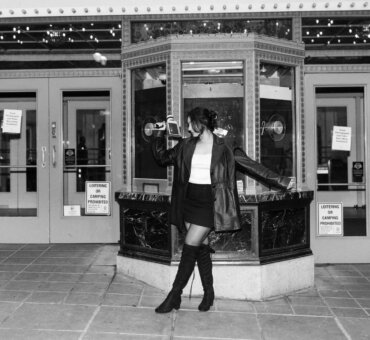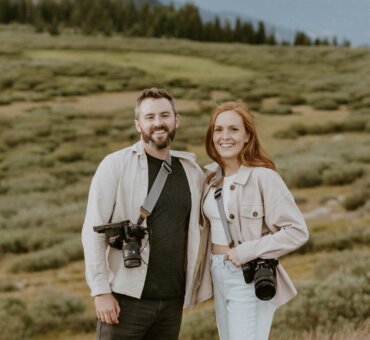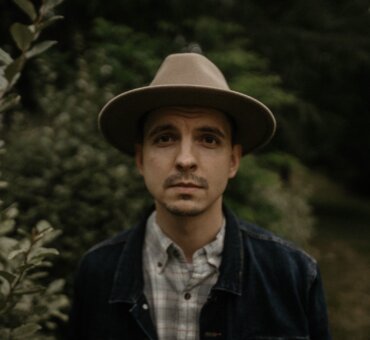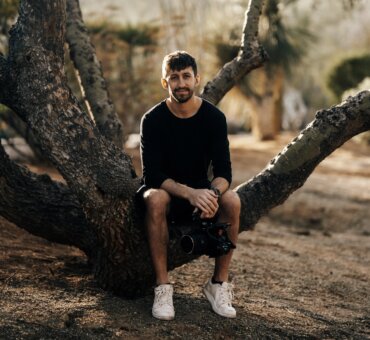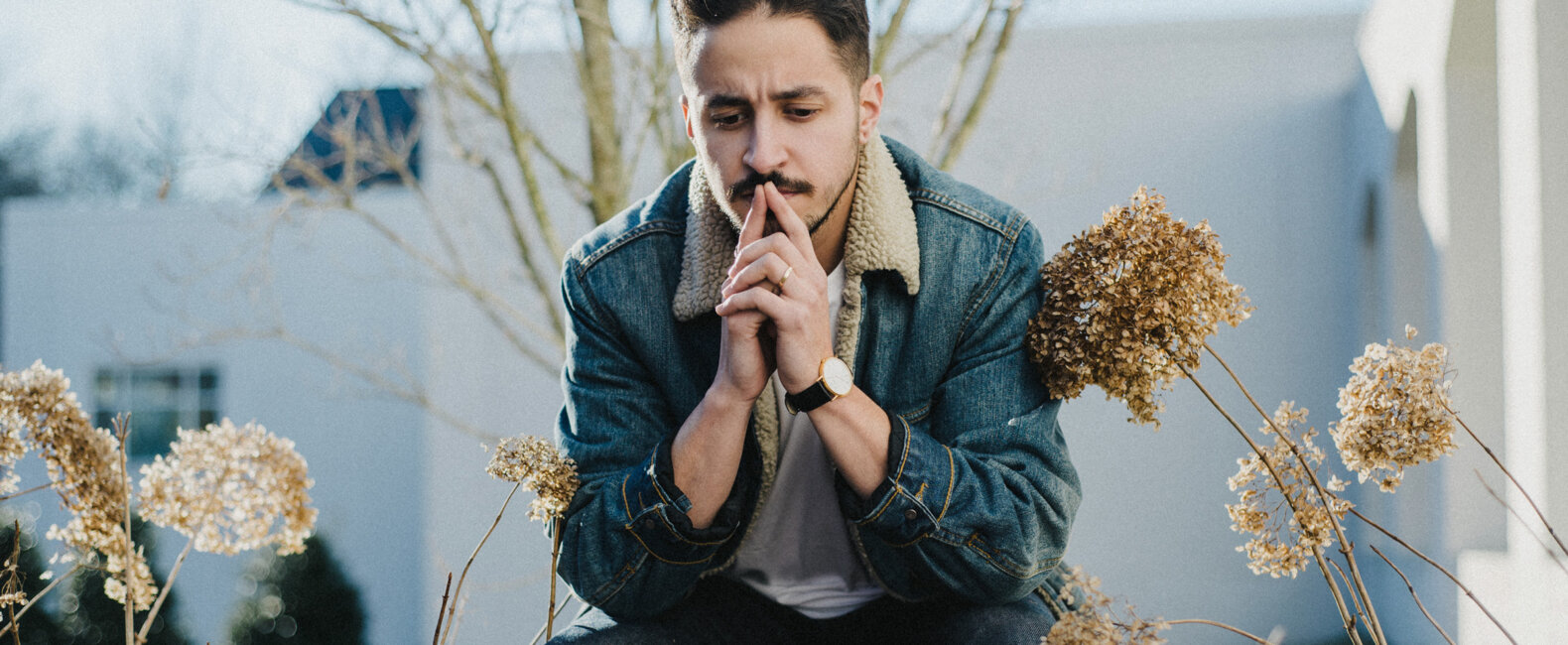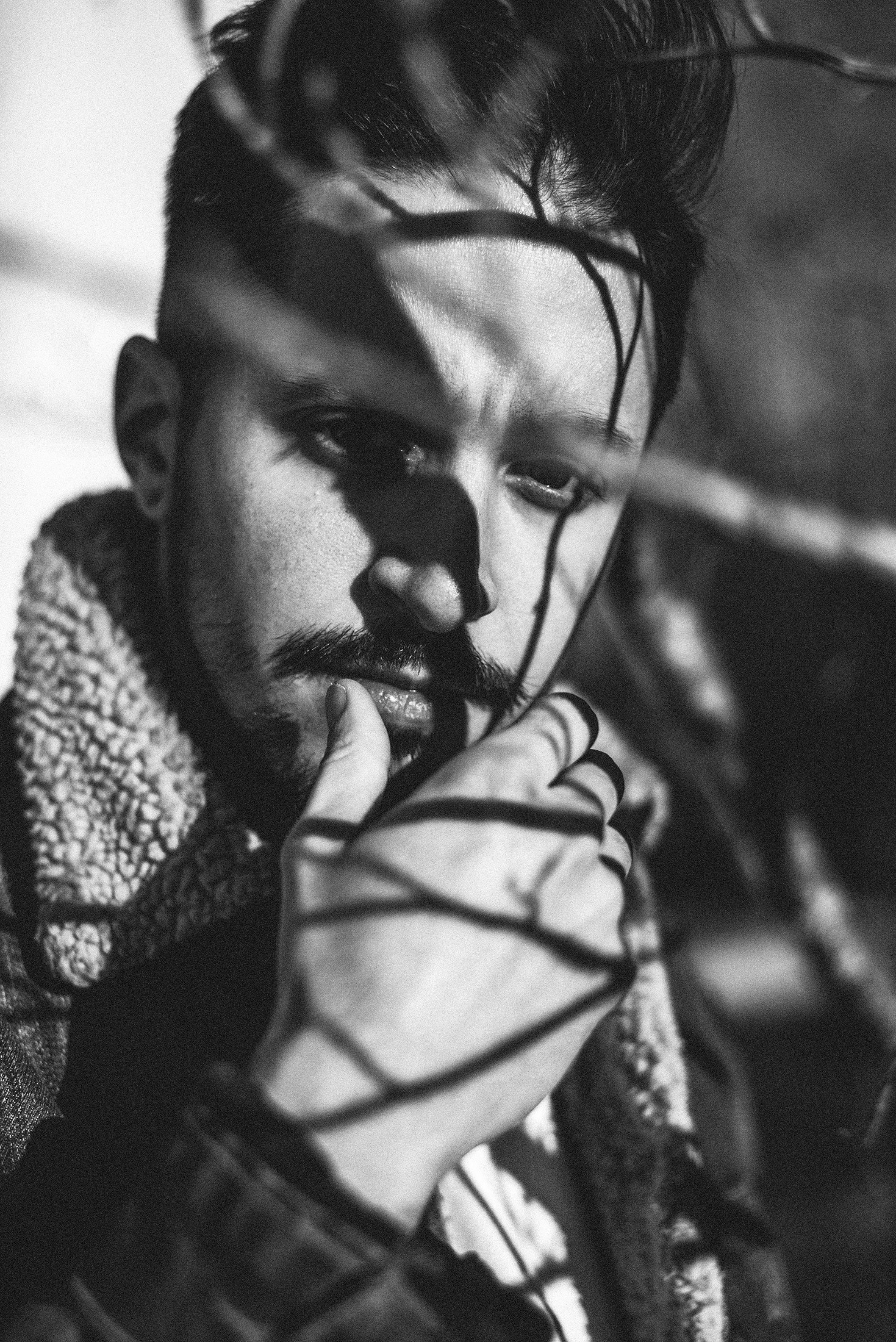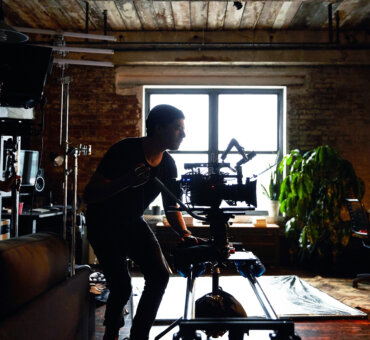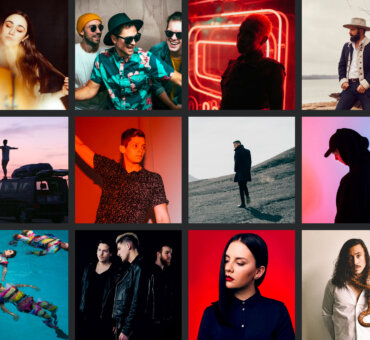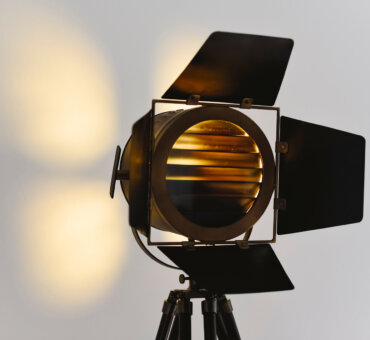KAPTAN is the first project Andrew de Torres has created that his wife actually likes. “We dated for six years, and she pretty much hated everything I did,” Andrew told us. “You get over it.”
Maybe Andrew’s wife likes KAPTAN because there’s so much Andrew in the music. These songs are practically made of Andrew. Despite more than a decade of touring and major-label record deals, this is his first solo project — and so, it’s his first chance to really be himself. “I’ve never had an opportunity like this before, to do whatever I want all the time.”
We were curious to learn more about the man behind the sun-drenched, saccharine tracks. Here’s out interview with Andrew, from his home outside of Nashville.

Musicbed: I saw that your song “Everything” was featured on Spotify’s New Music playlist.
Andrew de Torres: Oh yeah. The people at Spotify have been really amazing. I don’t know why or how it happened. We definitely weren’t expecting it at all. They don’t send out emails letting you know what playlists you’re on or anything.
So you have to log on and find it like a normal person?
Just log on and go look for it. See how many plays songs have. They literally tell you nothing.
Wow. So let’s back way up. When did you start taking music more seriously?
I was about 13. It happened when I first started playing guitar. I was getting super into all of the ’90s alternative bands. Third Eye Blind. Semisonic. All that stuff. Then in eighth grade I started a Blink-182 cover band. We practiced in our grandmas’ garages and played small shows. It wasn’t anything crazy. But after a year or two, we started writing our own songs.
Did growing up in Seattle affect the way you thought about music?
I know there’s so much crazy history in Seattle — Pearl Jam and Nirvana and that stuff — but I never got into grunge. I went to a lot of shows in middle school and high school, but I was into bands like Death Cab for Cutie and Sunny Day Real Estate. So growing up in the Seattle scene did affect me, just not in the way people might expect.
It was a really good period of time though. There was a real sense of community between the bands coming up in Seattle at that time. And that sense of community played a huge part in why I decided to start touring and taking music more seriously. You’d see people from other bands come out to your shows. We all knew each other’s songs. It was a good time. Unfortunately, when we all started touring, fans in Seattle kind of lost interest. I guess they felt like, Oh, they’re popular now, so we don’t like them anymore.
How old were you when you started touring?
I was around 18.
Can you describe those tours?
Messy. But a lot of people were coming out for the shows for some reason. We’d play somewhere for the first time, and a couple hundred kids would show up. So it was also awesome at the same time. We were all pretty young. I was the oldest and I was 18, so the whole thing was like a dream come true. It was surreal to see kids show up and know your songs. I think having people know your songs is by far the coolest experience a musician can ever have.

I was actually touring with two bands at the time. The Scene Aesthetic and Danger: Radio. I never wanted to be home. I did whatever I could to be on the road. The other guy in The Scene Aesthetic ended up going on a mission trip for two years. So I kept working on Danger: Radio, and we ended up signing a deal with Atlantic Records. We got this great agent who kept us on the road all the same. At the end of the year, he told us we’d played 280 shows. We released a major-label album and got to work with all these awesome, crazy people. Then, like every sad musician story, our A&R guy retired, and we got dropped almost immediately. We saw it coming. It wasn’t a surprise.
Do they tell you that type of thing over email?
We got a phone call from our manager and our manager told us. It was whatever. Everything happens so fast. We signed with Atlantic in 2007, released our album in 2008, and got dropped in January 2009. It was real, man. But we kept touring. My friend from The Scene Aesthetic got back, and we started another band that’s actually on Musicbed — Prince of Spain. And then I started KAPTAN.
Just nonstop music.
It really has been. From an outsider’s perspective, it probably looks a little nuts.
Have you ever thought about doing anything else?
Not really.
I try to write about things that are happening in my life, but I say them in a way that someone else can connect with, something that might feel similar to their own life.
Why music?
That’s a good question, and I don’t know. It’s like anything. You read something or see something or hear something, and you just connect with it. For me, music was always the thing that drew me in. You hear a song and something clicks. So now when I’m writing my own music, I’m trying to do that same thing for other people. I try to write about things that are happening in my life, but I say them in a way that someone else can connect with, something that might feel similar to their own life.
That’s such an interesting balance. If you tip too far one way, you become too esoteric; too far the other way, and you’re bubblegum pop.
I feel like that sometimes with Ben Gibbard. I’m a huge Ben Gibbard fan, but sometimes he’s so descriptive in his songs that it’s hard for me to have a personal connection with them. At the same time, though, it’s cool to have this peek into someone’s life.
What’s your favorite part about being a musician?
I love writing. The writing process. I probably love that more than recording or anything else. At the same time — and this is weird because I’m a pretty awkward person — I really love meeting people. When we were touring a lot, I met so many people. It’s weird, but I’m good at remembering people. I’m still friends with people who went to one of my shows 10 years ago.
Do you write music every day?
Well, I basically work a 9-to-5 job now for my record label, so I have to set aside time to write. It just depends on when things come to me. I don’t do that well when I try to force things out.
Does inspiration come in a certain way for you? A melody first? Or a lyric?
Pretty much everything I write starts with a guitar melody. Something just strikes my brain and a couple hours later a song is finished. I’m the kind of person who likes to write from the beginning of a song until the end. I know a lot of people who like starting with the chorus. But for whatever reason, that doesn’t work as well for me. I start from the beginning and figure it out as I go.
Did you think of the sound for KAPTAN and then try to write songs for it, or were you writing poppy, fizzy songs and then decided to call it KAPTAN?
Well, what happened was my wife bought me an electric guitar. I hadn’t owned one for probably eight years. She got me this weird, cool guitar called a Decca. They sold them in Sears back in the ’60s. It’s got a very distinct sound. Twangy and surfy. She bought it for me, and I freaking loved it, and that’s when I started writing all the KAPTAN stuff. I don’t know, it just started working out.
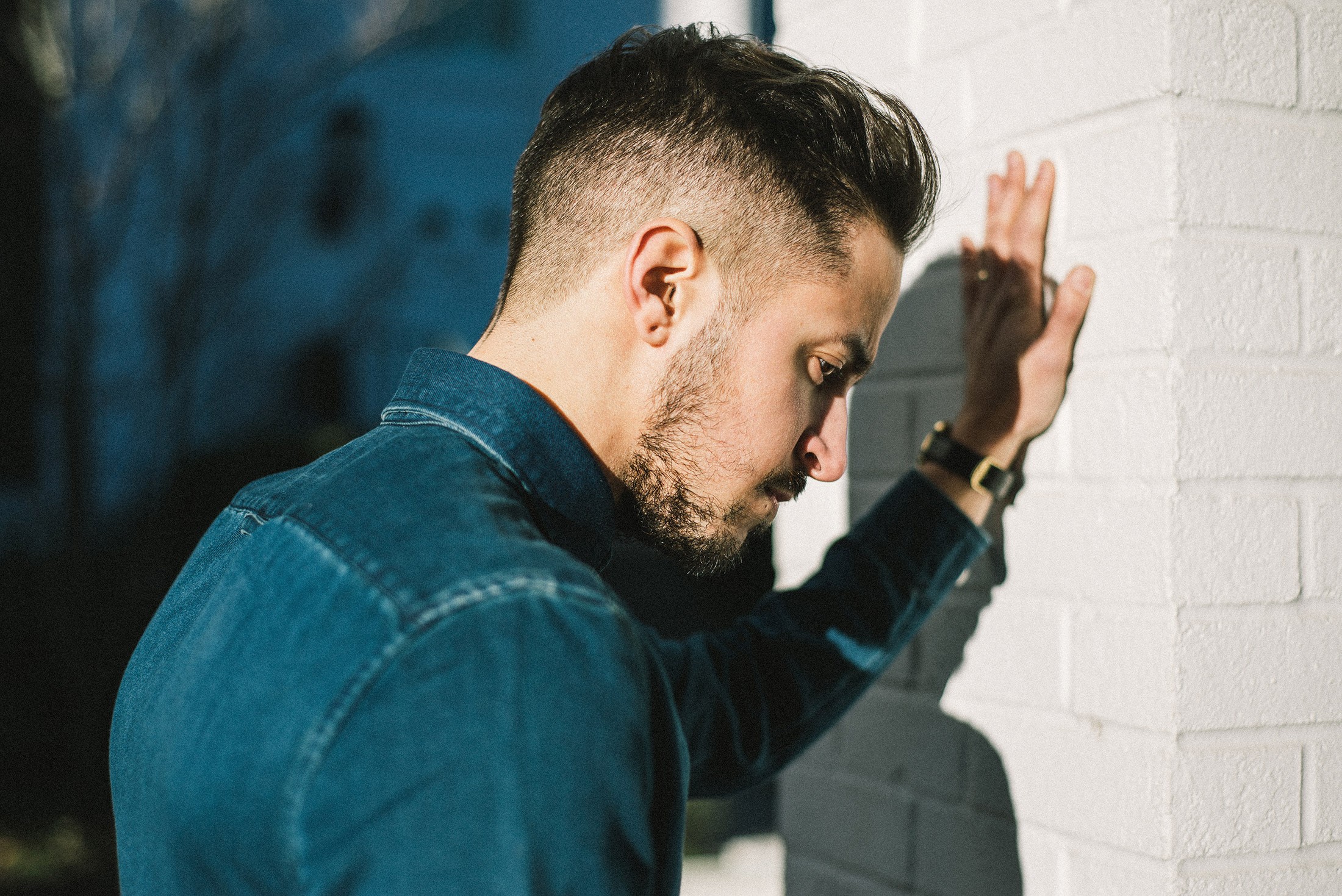
Are you inspired by gear?
Definitely. I write for KAPTAN exclusively on the electric guitar. When I write for Prince of Spain, I play an acoustic.
Is there a moment for you when the music feels real? Is it once it’s written? Once it’s recorded?
It’s definitely cool to release songs, but there is something missing from a product until we start playing shows. There are a lot of amazing musicians out there — especially in the sync world — who do amazing work and never play shows. But I feel like something important happens when I play a show, no matter how small or big. The music feels tangible. People can kind of see it and touch it and hear it at the same time. That’s when it feels real to me.




































































